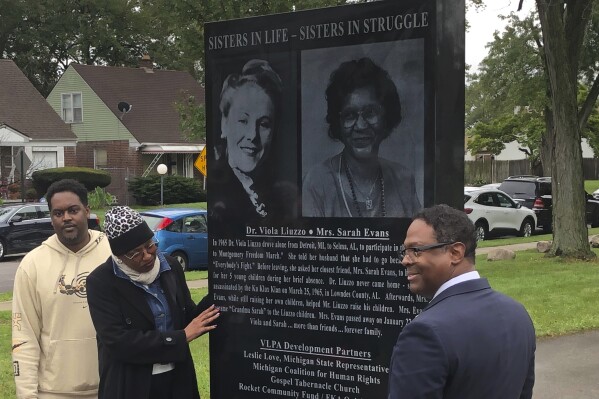Alabama objects to proposed congressional districts designed to boost Black representation
MONTGOMERY, Ala. (AP) — The Alabama attorney general’s office said Thursday that it opposes all three congressional maps proposed by a court-appointed special master as federal judges begin drawing new lines to create a second majority-Black district in the state or something close to it.
The attorney general’s office objected to the proposals, maintaining “that the districts based on this structure are unconstitutional racial gerrymanders.”
Plaintiffs in the case wrote that two of the plans are acceptable. The plaintiffs, who won before the U.S. Supreme Court twice this year in the redistricting case, objected to the third plan and said the suggested district would continue to be mostly won by white candidates.
The three-judge panel had asked the two sides to weigh in on the proposed new districts ahead of a hearing next week.
 No. 12 Alabama’s defense holding its own while offense struggles. Mississippi State the next foe
No. 12 Alabama’s defense holding its own while offense struggles. Mississippi State the next foe
 Monument honoring slain civil rights activist Viola Liuzzo and friend is unveiled in Detroit park
Monument honoring slain civil rights activist Viola Liuzzo and friend is unveiled in Detroit park
 No. 12 Alabama seeks 16th consecutive win over Mississippi State, which wants out of SEC basement
No. 12 Alabama seeks 16th consecutive win over Mississippi State, which wants out of SEC basement
Evan Milligan, the lead plaintiff in the case said Tuesday that the Supreme Court’s decision will allow the state to have fair districts.
A group of Black voters and advocacy organizations challenged the state’s existing congressional plan in 2021. Plaintiffs had argued Alabama racially gerrymandered congressional lines so that Black voters were unable to influence elections outside of the state’s single majority-Black district.
A three-judge panel later found the state illegally diluted the voting strength of Black voters and ordered new districts drawn for the state. The panel is also stepping in to draw the new lines after Republican lawmakers defied their finding that Alabama — which is 27% Black — should have a second-majority Black district or something “close to it.”
The three proposals, submitted Sept. 25 by the court-appointed special master, would alter the boundaries of Congressional District 2 in south Alabama so that Black voters comprise between 48.5% to 50.1% of the voting age population.
The plaintiffs urged the court to adopt either proposed Plan 1 or Plan 3, saying that those adequately remedy the Voting Rights Act violation. They said the special master’s analysis concluded that the Black-preferred candidate would have won election in 15 or 16 out of 17 contests.
Plaintiffs objected to Plan 2 and said it “fails to reliably provide Black voters an opportunity to elect a candidate of their choice.” They said an analysis shows that it would continue to elect candidates backed by white voters.
“A district where the Black-preferred candidate wins only one of five times (20%) in the most recent congressional election cannot be considered an opportunity district,” plaintiffs wrote.
The judges asked the special master to file a response to the objection by Monday.
“An argument that it is needed to guarantee a win by the candidate of choice of black voters is inconsistent with the language of Section 2, which merely requires an equally open process,” the state attorney general’s office wrote.
The three-judge panel earlier this month chided state lawmakers, writing that they were “deeply troubled” lawmakers flouted their instruction to create a second majority-Black district or something close to it.
The U.S. Supreme Court, which ruled against the state in June, on Tuesday rejected Alabama’s request to put the re-draw on hold and let the state keep using a map with a single-majority Black district. Alabama Attorney General Steve Marshall said the state will continue to appeal.
Disclaimer: The copyright of this article belongs to the original author. Reposting this article is solely for the purpose of information dissemination and does not constitute any investment advice. If there is any infringement, please contact us immediately. We will make corrections or deletions as necessary. Thank you.





